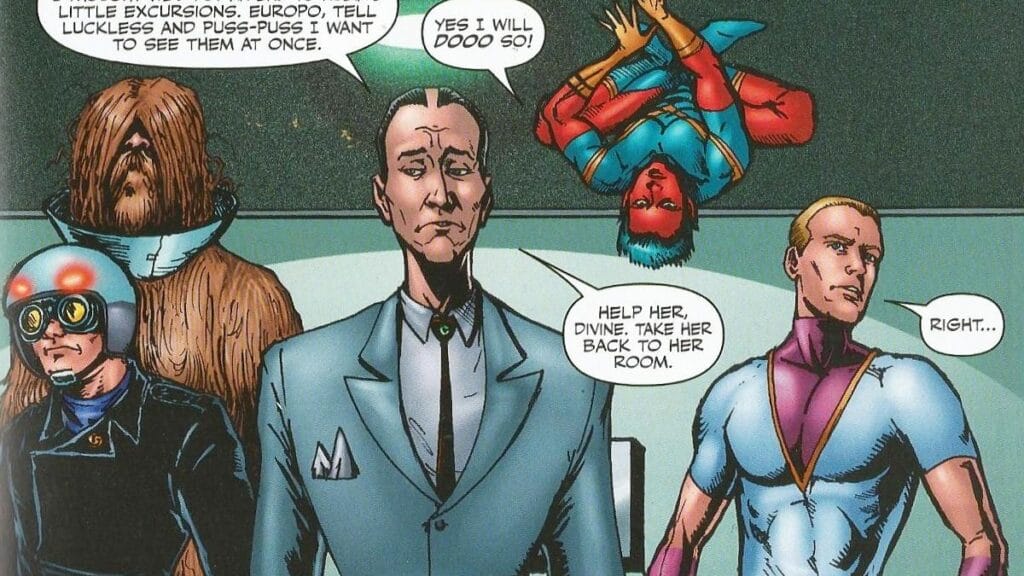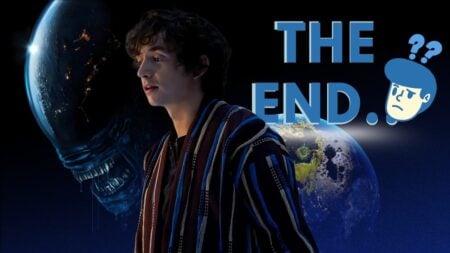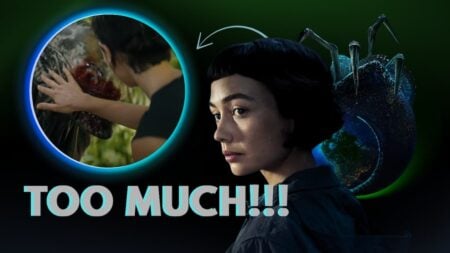Skip To...
The Boys spin-off Gen V began as a riff on X-Men. It evolved loosely from a chapter of The Boys comic called “We Gotta Go Now.” The comic has foundational problems that the show ironed out. Gen V started its run borrowing more elements from Hunger Games than any Marvel property. The season found something to say about the franchise that inspired it near the end. Gen V finally tied into the themes of X-Men in the most astute critique in years.
Gen V Finds Satire Without Parody

The Boys comic’s approach to superhero satire mindlessly shoves mature themes and disgusting ideas into otherwise normal stories. The show found worthwhile things to say while also pushing the boundaries of good taste. It should be no surprise to those familiar with the comic that Garth Ennis’ idea of an X-Men parody is “What if Charles Xavier was a predator?” That show would not and should not come to screens. Subsequently, Gen V is almost unrecognizable as an adaptation of The Boys. It’s a spin-off of a semi-faithful show that takes an intelligent approach to the source material. The Boys borrows what works and ditches everything else. In “We Gotta Go Now”‘s case, the writers took the idea of a superhero college and abandoned the rest.
In X-Men, mutants are humans born with superhuman abilities and persecuted by a terrified public. Charles Xavier stands up for his mutant brethren, convinced they can live peacefully with humanity. Magneto, on the other hand, fights for his people, raising armed resistance to prove their superiority. The Boys comic fails to address those ideas, but Gen V approaches them from the opposite angle. Supes in Gen V gained their power through a drug infusion rather than genetics. Their parent typically made that choice for them. Over eight episodes, it’s unveiled a villain who intends to wipe out supes. Their logic is that they’re too dangerous to leave alive, a common argument against mutants. Two camps rose in opposition to that attack. One is convinced they can live peacefully with humanity. The other wants to raise armed resistance to prove their superiority.
Gen V and X-Men Put Power In Opposite Hands

Someone once said Magneto had to become an anti-hero because the writers could no longer pretend he was wrong. A cruel, hostile world that would gladly eliminate a species demands a slightly harsher response than school administration. Magneto himself is a holocaust survivor. Most of his followers are runaways, outcasts, and orphans. They have access to one kind of power, and they’re willing to use it to gain others. The Boys imagines a world in which those with superpowers also have access to the full force of capitalism and celebrity culture. In that world, the supes are the 1%. When Magneto says “Mutant and Proud,” he’s boldly affirming his membership in a truncheoned underclass. When a batch of God U students shout “Supe Lives Matter,” they’re proclaiming their intention to take control. The math changes sharply when the person screaming is no longer the underdog.
Gen V and X-Men do not have opposite morals. Imagine Charles Xavier stepping in to solve the conflict at the end of Gen V. Vought, the global megacorporation that controls every element of supe culture, remains the primary antagonist. The effort to kill all supes seems to be under Vought’s nose, but that doesn’t suddenly absolve them of their sins. Few watching Gen V would root for the anti-supe virus. Similarly, no one reading X-Men would support the Sentinels. Both stories see humans trying to eliminate superhumans. The question is how they should respond. Can mutants coexist with those who hate and fear them? Would it be easier if a few of them were rich, famous mass murderers?
Gen V isn’t going to put its heroes in spandex or start calling them the V-Men or whatever. The show has avoided the kind of straightforward parody found in The Boys. Instead, Gen V riffs on the themes of X-Men. It’s a brilliant way to tackle subject matter that has been addressed dozens of times. Gen V seemed intelligent from the start, but its most recent reveals unveil layers of clever satire that outdo anything that came before.







